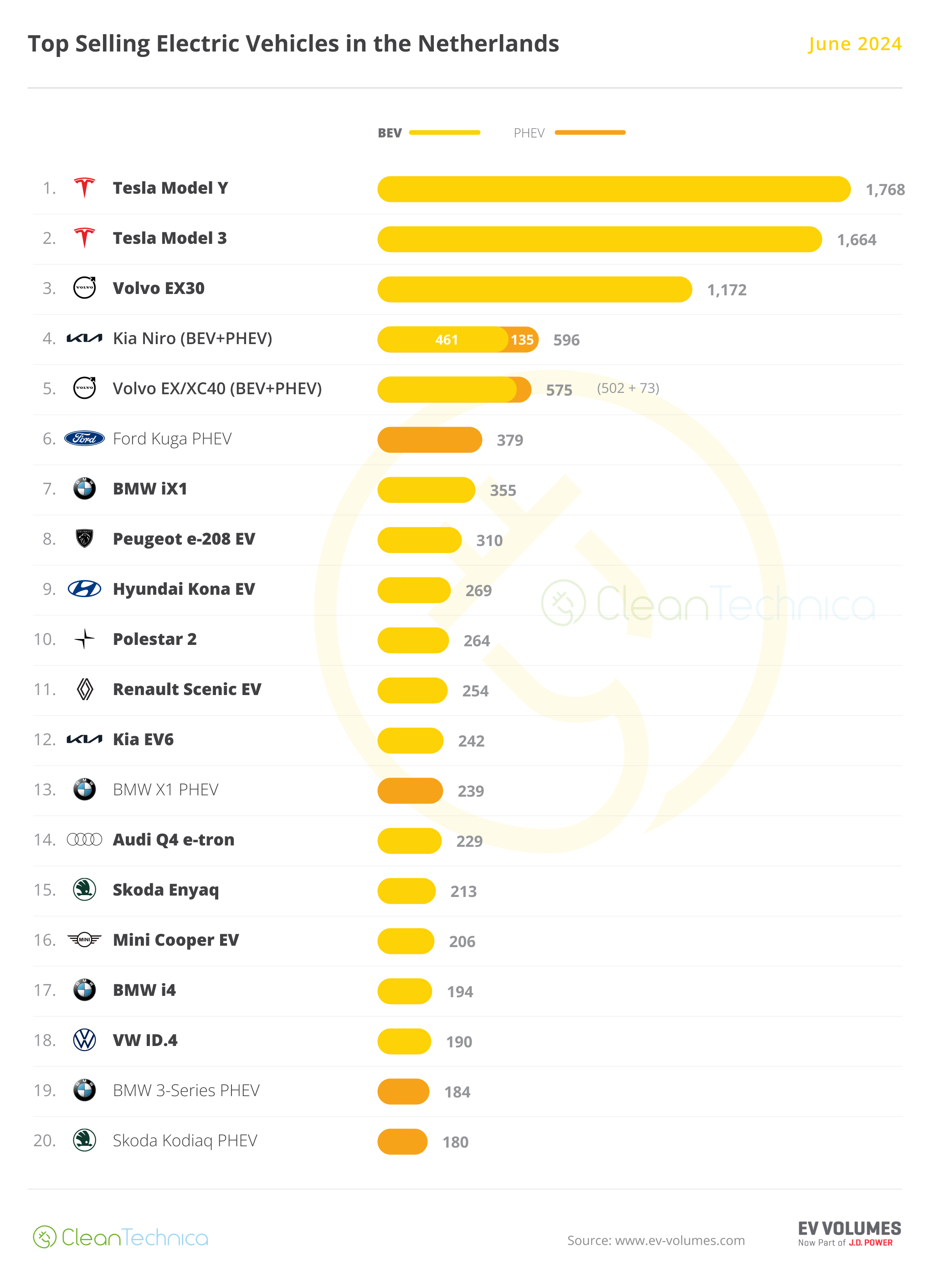Sign up for daily news updates from CleanTechnica on email. Or follow us on Google News!
Americans burn much less fossil fuel in their homes on average and use much more electricity compared to half a century ago. This good news means that even though the “Electrify Everything” movement became a leading decarbonization strategy a decade or so ago, American homes had actually been steadily electrifying long before that. An all-electric future is thus not only possible, we’re well on our way to achieving it.
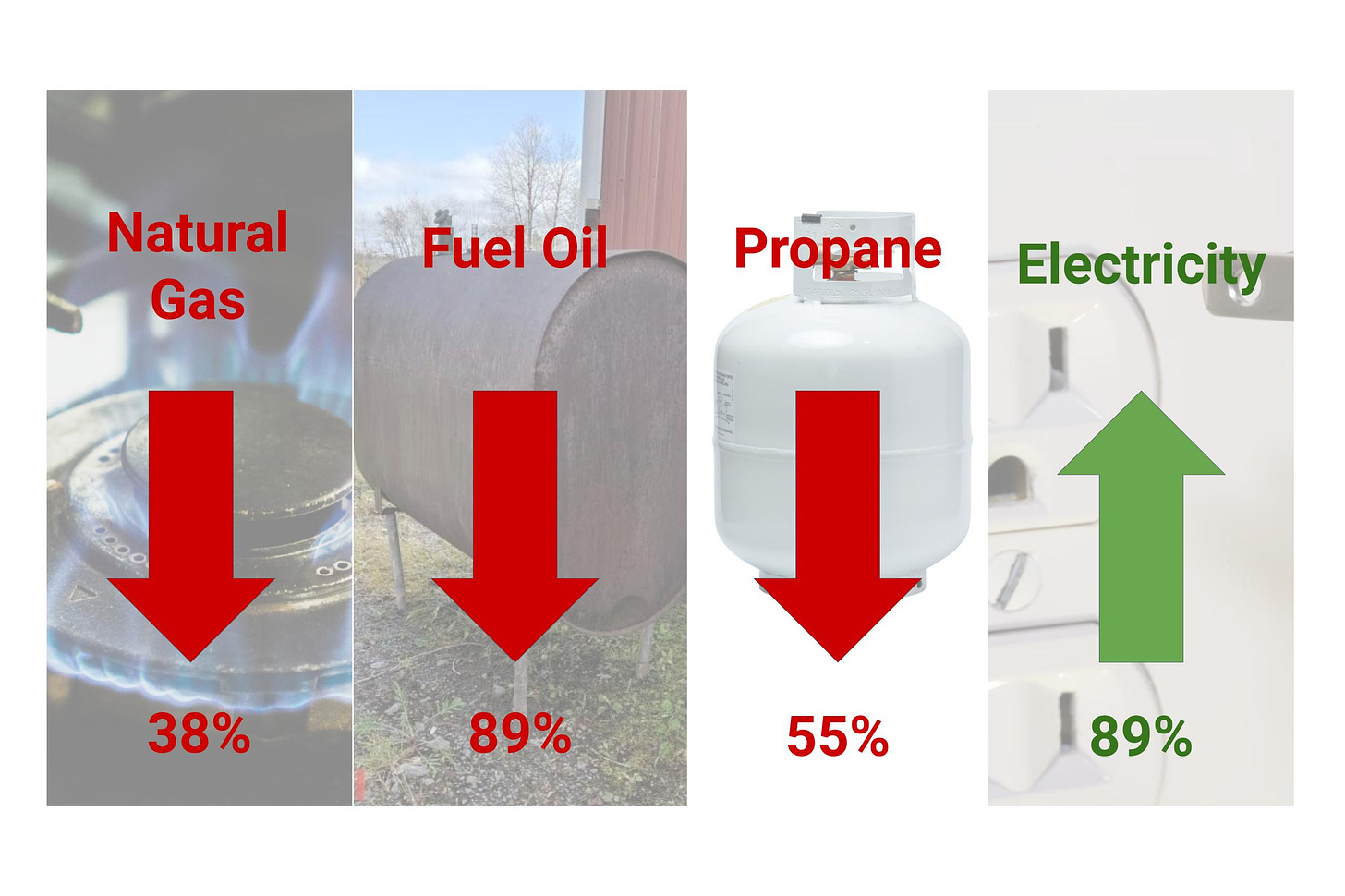
Let’s dive into the numbers to see what happened and analyze why this trend, which is so good for the planet, has been taking place seemingly on its own.
Less Fossils, More Electricity
Today, per capita, Americans burn about 55% less fossil fuel in their homes than fifty years ago.

Meanwhile Americans use almost 90% more electricity per person than we did in the early 70s.

Electricity as a percentage of per capita energy that Americans use in their homes has thus nearly tripled from 16% in 1972 to 45% today.
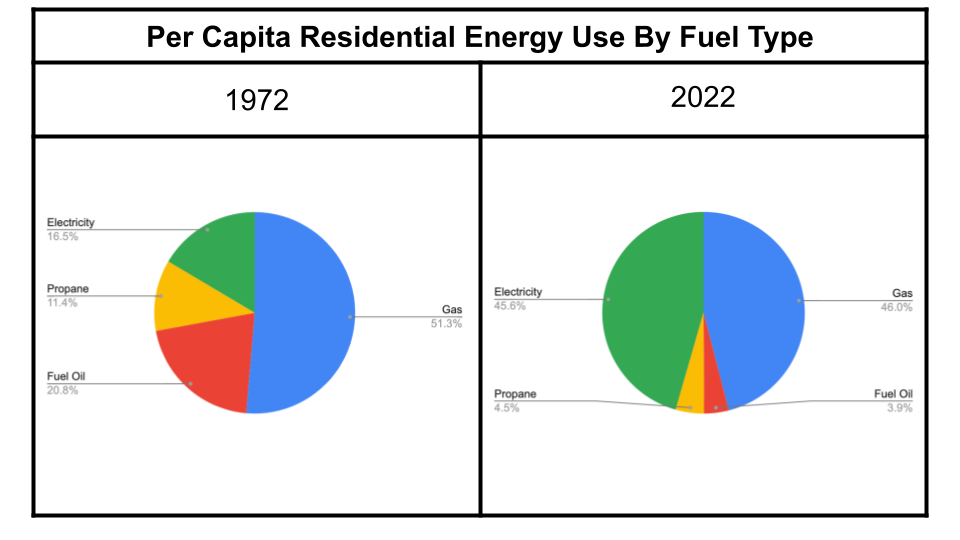
What accounts for this increased use of electricity and decreased fossil fuel use? Why have we been electrifying everything for the last five decades without anyone knowing or talking about it?
More Electric Appliances
Well for one, we have more gadgets that run on electricity. American homes now have 24 pieces of electronics in their homes on average. Air conditioning is a good example of a household appliance that has increased its presence in American homes dramatically over the last half century. 46% percent of Americans homes had AC in 1976, and that number has increased to 95% today.
But we should note that while there are many more electric appliances in the home now, they are significantly more efficient and use a fraction of the energy of their predecessors. Electric appliances have achieved more efficiency gains than gas appliances, as evidenced from the chart below where gas furnaces have barely gotten more efficient in the last 3 decades. Electricity would thus be even a larger share of home energy use but for these incredible gains in efficiency.
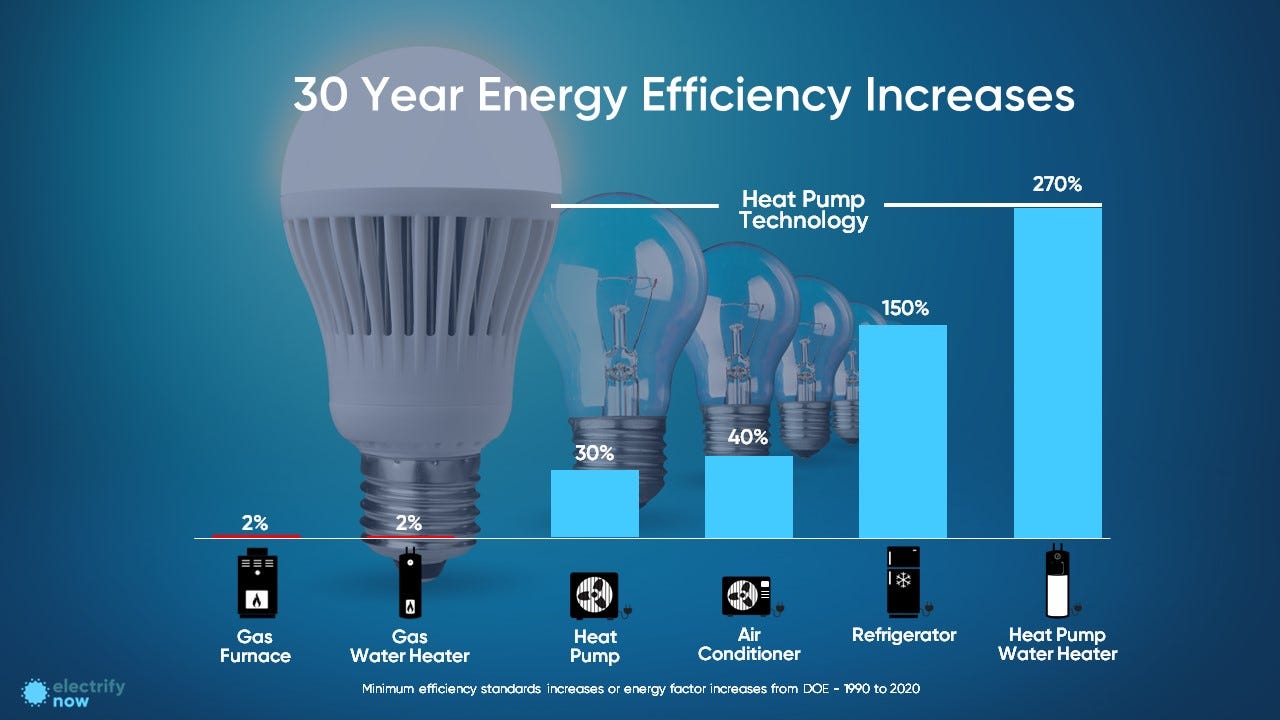
Natural Gas Use Down By 40% Since 1972
While natural gas bans have entered the cultural wars with sensational headlines about gas stoves, American households have steadily been using less of this fossil fuel since the 1970s. Total use of natural gas (aka methane) in homes has been flat in the US (even declining slightly from its peak in 1972) for 50 years while the US population has grown by 60%. Per capita gas use has fallen by almost 40%. This means that with over 120 million more Americans alive today than 50 years ago, we don’t use any more natural gas overall.

What are the reasons behind this 50-year trend to burn less methane in our homes? The Natural Gas Supply Association (NGSA) thinks that gas appliances becoming more efficient is one of the reasons we burn 40% less gas in our homes than we did 50 years ago, though we saw above that gas appliances have hardly improved their efficiency, especially compared to electric appliances. Our homes have also of course become much better insulated over the last 50 years.
NGSA also points to the fact that more homes have been built in the Southern parts of the US and have lower heating needs as another reason for decreased natural gas usage. The US census shows this to be true, with 40% of new homes built after 1970 in the South compared to 28% in the decades before that.
But these reasons don’t tell the whole story. Americans use electricity to heat our homes and water significantly more than 2 generations ago, which is another sign of a natural trend towards home electrification. The development of heat pumps and heat pump water heaters over the past decade or two, along with states and local jurisdictions looking to decarbonize, should increase this trend as well.
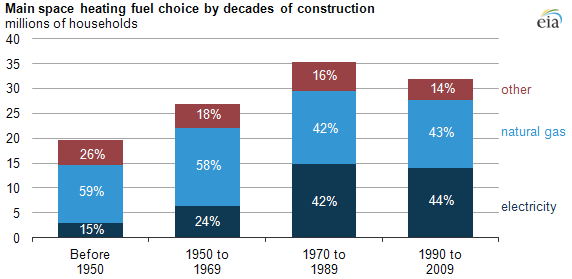
Propane & Fuel Oil Fall Off A Cliff
Burning propane and fuel oil was much more common five decades ago and has declined substantially.

Cost is a big reason. Both propane and fuel oil are delivered fuels and cost significantly more than natural gas or heat pumps (Efficiency Maine has a good calculator showing this). Propane is mostly used in rural areas, but heat pumps have now shown they can do everything propane used to do for much less cost. Fuel oil is dirty, expensive, and there is the tiny problem of buried and leaking tanks (my state of Oregon, for example, has 100,000 buried and potentially leaking fuel oil tanks). Fuel oil has declined the most of any fossil fuel (nearly 90% per capita) and is really only used in the Northeast anymore (and is declining there as well).

On Our Way to An All-Electric Future
We burn less than half the amount of polluting fossil fuels in our homes as our grandparents did 50 years ago. Americans have steadily electrified their homes by buying new electric devices and by converting ones that used to burn fossil fuels to electric. At the same time, electric appliances have gotten incredibly more efficient (thank you LEDs and heat pumps!) Long before “Electrify Everything” became a movement and a way out of the climate crisis, Americans had been doing just that and showing a clear path to a post carbon world.
My spreadsheet with EIA data is here. I trust CleanTechnica’s readers to fact check my numbers and point out any errors! Any other reasons you think Americans use less fossils and more electricity? Put them in the chat below.
Have a tip for CleanTechnica? Want to advertise? Want to suggest a guest for our CleanTech Talk podcast? Contact us here.
Latest CleanTechnica.TV Video
CleanTechnica uses affiliate links. See our policy here.




